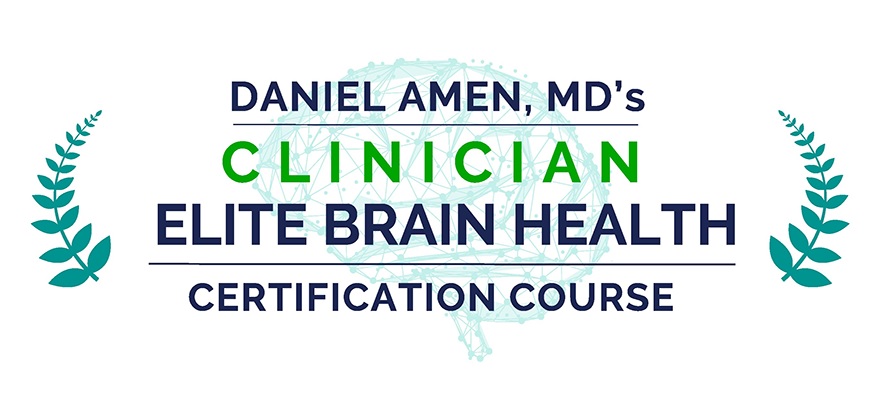
If you are a clinician, there is a good chance you have noticed that the word “brain” comes up more and more in your work. Patients talk about brain fog and burnout. Podcasts highlight neuroplasticity and trauma. You may even catch yourself sketching brain diagrams on scrap paper in session so you can explain what you mean.
At some point, curiosity alone stops feeling like enough. You start wondering whether you should move beyond articles and short webinars and commit to serious, structured brain health training. That might mean a comprehensive online certification, a high level course, or an intensive mentorship.
The decision is not small. Advanced training usually involves real money, real time, and a genuine shift in how you practice. So how do you know when you are truly ready, rather than just mildly interested? Here are five signs that often show up right before clinicians take the leap.
Contents
- Why Advanced Brain Health Training Is A Big Step
- Sign 1: You Think In Brain Language Already
- Sign 2: Complex Cases Leave You Wanting Better Maps
- Sign 3: You Want A Clear Professional Niche
- Sign 4: You Are Ready To Invest In Your Own Growth
- Sign 5: You Feel Excited, Not Just Curious
- How To Take Your Next Step Wisely
Why Advanced Brain Health Training Is A Big Step
Before looking at the signs, it helps to acknowledge why this feels like such a big decision. You have already invested heavily in your education. You probably carry responsibilities to patients, employers, and your own family. You do not have endless time or energy to pour into another long program just because it sounds interesting.
Advanced brain health training is different from a one hour webinar. It usually offers deep teaching on brain systems, structured assessment tools, treatment protocols, and often some form of mentorship or case consultation. In return, it asks you to show up as a serious learner, ready to apply what you learn.
That kind of investment makes sense when brain centered work is becoming a core part of your identity as a clinician, not just a side hobby. The signs below are clues that this shift may be happening for you.
Sign 1: You Think In Brain Language Already
One of the clearest signs you are ready for advanced brain health clinician training is that your mind keeps drifting toward brain explanations even without formal prompts. You may find yourself saying things like, “Your brain is trying to protect you,” or “This part of your brain acts like a panic button.” You reach for brain based metaphors because they seem to fit what you are seeing.
Maybe you feel a little uneasy when you do this, because you are not sure how detailed your explanations should be. You do not want to oversimplify, and you also do not want to accidentally misrepresent the science. That tension is actually a good sign. It means your clinical intuition is moving ahead of your formal training, and you are ready to back it up with solid knowledge.
Clinicians in this stage often say things like, “I know enough to realize how much more there is to learn.” That is exactly the mindset that makes advanced brain health certification useful instead of overwhelming.
Sign 2: Complex Cases Leave You Wanting Better Maps
Every clinician meets patients who do not neatly fit into a single diagnosis or treatment manual. They arrive with overlapping anxiety, mood shifts, attention issues, sleep problems, medical conditions, and long histories. You may already be doing careful, compassionate work with them, yet still feel that something important is missing.
If complex cases make you think, “I wish I had a clearer map of what might be happening in this person’s brain,” that is a strong indicator you are ready for more advanced tools. Brain health training gives you frameworks that organize symptoms, history, and risk factors around the organ that links them all.
Instead of juggling isolated problems, you learn to ask pointed questions about head injuries, toxins, infections, developmental patterns, and lifestyle. You start seeing how different brain systems might be under stress. That shift can transform cases that once felt chaotic into puzzles you can actually work with.
When the desire for better maps keeps resurfacing, it is a sign that simply “getting by” with your current knowledge is no longer satisfying.
Sign 3: You Want A Clear Professional Niche
Another sign you may be ready for advanced brain health training is a growing desire to be known for something specific. Generalist work is valuable, but many clinicians eventually feel pulled toward a focused identity. You might have noticed that you feel most energized when working with patients who have concussions, learning challenges, chronic stress, or early cognitive decline.
Brain health offers a powerful organizing theme for a niche like that. Instead of marketing yourself as yet another clinician who treats “depression and anxiety,” you can become the provider in your community who specializes in brain smart care. That could look like:
- Building a practice that centers on cognitive wellness and healthy aging.
- Developing services for athletes or others with a history of head injury.
- Creating brain focused support for adults with attention problems.
- Offering programs that help stressed professionals protect their brains.
To claim that kind of niche with integrity, most clinicians want more than scattered reading. They want a structured training they can point to when patients, colleagues, or organizations ask, “What qualifies you to do this?” Advanced brain health certification fills that gap.
Sign 4: You Are Ready To Invest In Your Own Growth
Advanced training is not only about information. It is also about your relationship with your own development. If you find yourself saying, “I am willing to put real time, effort, and money into becoming the clinician I want to be,” that is a strong indicator you are ready.
This does not mean you have endless resources. It means you are willing to shift priorities so that serious learning has a place in your calendar and budget. You might:
- Set aside specific evenings for study.
- Rearrange a clinic day once a month for live calls or mentorship sessions.
- View tuition not as a sunk cost, but as an investment that can return value through better outcomes, more referrals, or new services.
When you are not ready, advanced training feels like pressure and guilt. When you are ready, it feels like a challenging but meaningful commitment, similar to training for a race or learning a new language. You know it will stretch you, and you also know you will be glad you did it.
Sign 5: You Feel Excited, Not Just Curious
Finally, pay attention to your emotional response when you imagine yourself fully trained in brain health. Do you picture yourself confidently explaining brain patterns to patients, designing brain smart programs, or consulting with teams? Do you feel a spark of excitement when you picture that future version of yourself?
Curiosity is what starts the journey. Excitement is what keeps you going when the program is in week eight, your schedule is tight, and the next quiz is waiting. If the idea of mastering this material makes you feel genuinely energized, that is a valuable sign.
Clinicians who thrive in advanced brain health training often describe a sense of “this is what I am meant to be doing” once they get into the work. That feeling does not erase the effort required, but it does make the effort feel worthwhile.
How To Take Your Next Step Wisely
If several of these signs resonate with you, you are probably closer to being ready than you think. The next step is not to sign up for the first program you see, but to choose a path that matches your goals and bandwidth.
Start by clarifying what you want most:
- Is your top priority clinical skill, career growth, personal renewal, or all three?
- How much time can you realistically give each week?
- Do you prefer a self paced course, or do you want live mentorship and a cohort?
Then look for a program that offers structured content on brain systems, assessment, and interventions, along with practical tools you can use immediately with patients. If it also provides community and support, even better. Those elements often make the difference between information you forget and transformation that lasts.
Most of all, trust the quiet sense of direction you feel. If your brain keeps circling back to brain health, that is worth listening to. Advanced training is not just about adding letters after your name. It is about deepening your ability to care for the organ that shapes every story you encounter in the clinic. When you are ready for that level of work, the step into advanced brain health training can be one of the most meaningful moves you make in your professional life.

